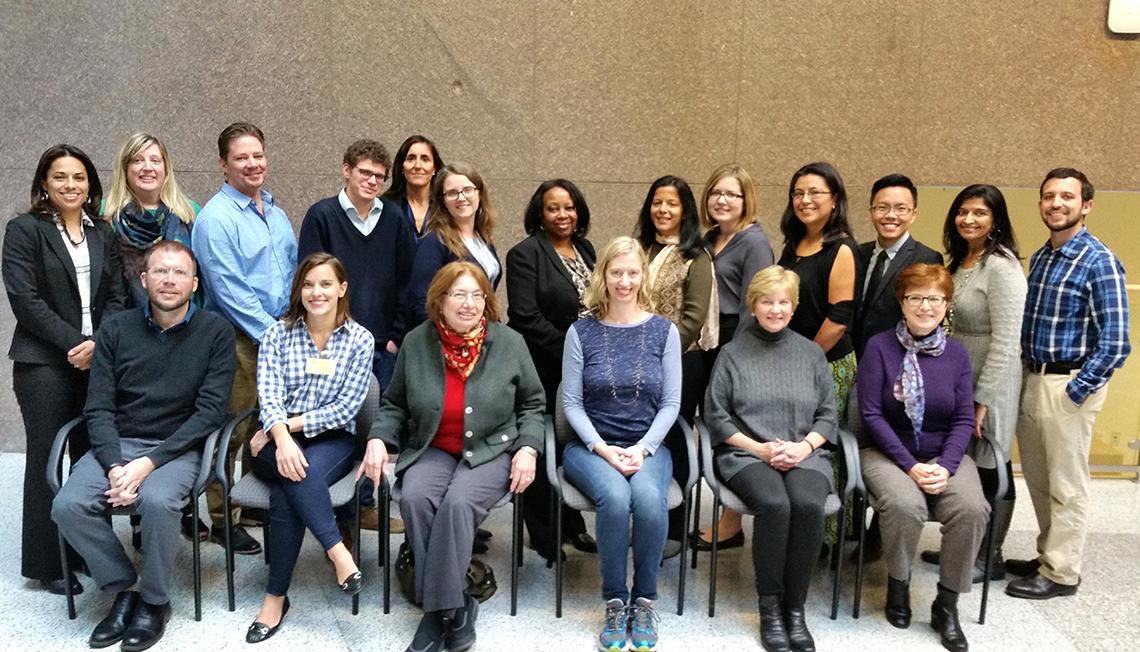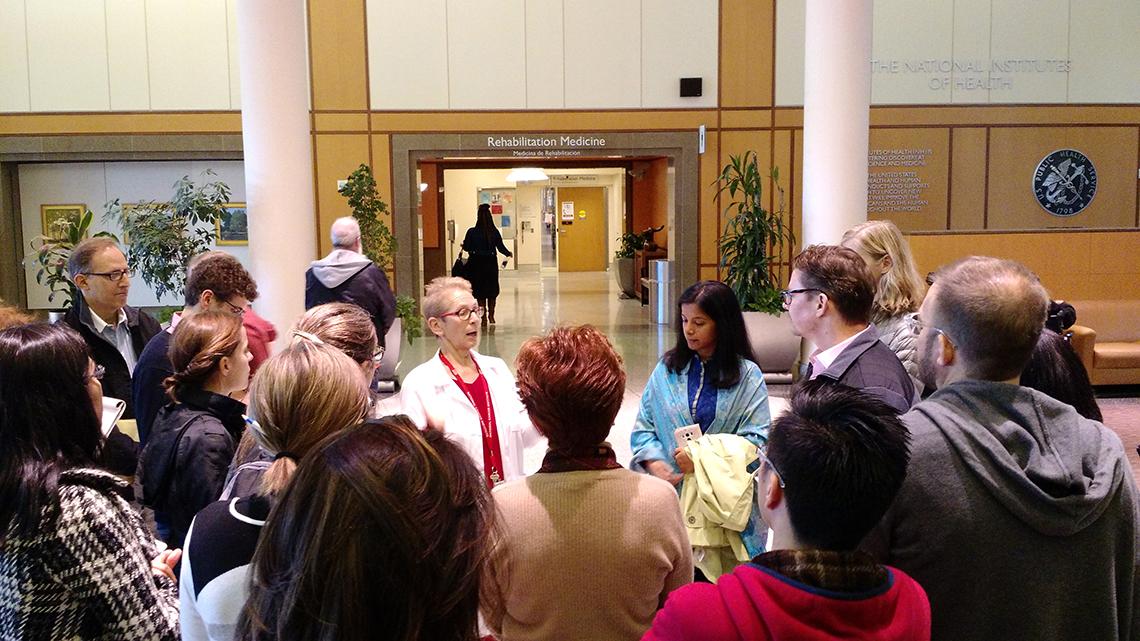Journalists Learn Fundamentals of Cancer Research

Photo: MARIANA EBERLE-BLAYLOCK
“I don’t want you to leave this room as cynics, but as skeptics,” said NCI’s Dr. Barry Kramer while presenting to a room of 14 journalists about cancer screening and guidelines. Participating as part of the first-ever National Cancer Reporting Fellowships, the individuals to whom Kramer spoke represented the lucky few selected to come to the Clinical Center for a 4-day workshop aimed at improving how the media reports on cancer research. The program ran Oct. 24-27.
The National Cancer Reporting Fellowships, a joint effort of NCI and the Association of Health Care Journalists (AHCJ), was developed as an opportunity for journalists to interact directly with the people whose news they report. The fellows represented a variety of affiliations, from independent freelancers to the Washington Post health section.

Photo: MARIANA EBERLE-BLAYLOCK
Over the course of the week, they heard from more than 20 experts covering a variety of topics. Sessions were on everything from the Cancer Moonshot and immunotherapy to disparities and genomics.
The program also featured a tour of several Clinical Center labs led by Caryn Steakley, deputy clinical director of the NCI Center for Cancer Research. During this time, the journalists met with Dr. James Gulley about checkpoint inhibitors for vaccines, Dr. Christian Hinrichs about bench-to-bedside research and Dr. Peter Choyke about advanced imaging techniques.
One special session included advocate Jamie Goldfarb, a melanoma survivor who led a discussion on story-building and the proper ways to interview patients for an article. Highlighting the need for empathy and understanding, Goldfarb provided personal anecdotes about her past interactions—positive and negative—with journalists.
“Over the last few days, this fellowship gave me the opportunity to immerse myself in research and data about cancer prevention, disparities and treatment,” said fellow Laura Santhanam of PBS NewsHour. “Cancer is one of the top causes of death among Americans, and as a journalist, I must use nuance to report on innovation so the public understands where science and medicine stand in the quest for a cure and what ground is left to cover.”
The event concluded with a session on the future of health care journalism by Len Bruzzese, AHCJ executive director, and Dr. Robert Logan of the National Library of Medicine. “Reporters are hungry for this kind of detailed topic training,” said Bruzzese. “We’re happy NCI was willing to host the fellowship week and make so many experts available to speak.”
